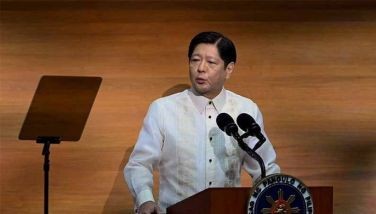Hardware

There is a real technology war going on below the fold, so to speak. It is a fierce and comprehensive struggle over establishment of “clean networks” using 5G technology. This will define how telecommunications progresses from here onwards.
The Clean Network is a US initiative announced in August 2020. It aims to build a global coalition of governments and private companies against “the long-term threat to data privacy, security, human rights and principled collaboration posed to the free world from authoritarian malign actors.”
The pronouncements might seem to echo Cold War rhetoric that pitted the “Free World” against totalitarianism. This current US initiative is presented as an “alliance of democracies and companies” that is based on “democratic values.”
Indeed, for many of Washington’s strategists, the Clean Network initiative is nothing less than a struggle for control of the hardware on which modern digital societies operate. This initiative brings together the State Department, the Treasury Department, the Office of the US Trade Representative, the National Security Council and the Commerce Department. It brings the ample resources of US diplomacy to convince nations and companies to adopt only “clean” hardware to build their information networks.
The “enemy” in this initiative are technology companies from China that many in the West see as Beijing’s shock troops in dominating the world’s digital infrastructure.
Chinese digital technology is in widespread use around the world. This is because the hardware is cheaper and in many aspects superior to rival technologies from western countries. But Washington is concerned that hardware coming from China could be used to capture information collected from open societies and used for the strategic goals of an authoritarian power.
The Clean Network initiative is a comprehensive one. It involves building superior chip technologies in the open economies while denying China access to vital parts needed to advance its own technology effort. It involves restricting open social media apps such as TikTok as well as convincing countries to begin shifting away from reliance on Chinese hardware providers, specifically Huawei and ZTE.
Despite the higher costs of keeping to “clean” hardware instead of patronizing Chinese suppliers, many countries and hundreds of companies have aligned with the Clean Network initiative. It helps that Washington applies tough diplomatic tactics and generous official development assistance to win allies.
American officials have been persistent in approaching telecommunications companies, convincing them to shift hardware suppliers from Huawei and ZTE to equivalent equipment from Nokia or Ericsson. They have offered grants for technical studies and financing from the US Export-Import Bank to help them make their choices. Their main selling point is to opt for technology that is “trusted.”
Although the Clean Network initiative began under the Trump administration, it has been continued under the Biden administration. There is clear bipartisan support for this effort.
Beijing, of course, is not pleased with this global American effort. A spokesman for the Chinese foreign ministry described the Clean Network initiative as a attempt to build “a US surveillance network” aimed at the consolidation of “US digital hegemony.”
As the Clean Network initiative progresses, it will have grave repercussions on the business outlook for China’s technology giants Huawei and ZTE. It will also reduce global dependence on all Chinese technology exports since they are branded untrustworthy by the Clean Network initiative. Whether or not Beijing nurses a strategy for dominating the 5G world through the pervasive use of Chinese hardware, the US initiative is simply bad for business.
Whether we like it or not, the Philippines is an important battleground for the technology superpowers. Beyond being the 40th largest economy in the world, we have a population that has taken to digital technology like fish to the water. From this year onwards, we will be leading the region in economic growth and will be attracting more technology-intensive investments.
Recall that during the Arroyo administration, we tried building a national broadband network using ZTE hardware. Controversies forced this project to be shelved – although, through the pandemic, we realized we lost much opportunity in failing to build a national broadband. It would have helped us shift to blended learning more efficiently and enhanced government’s ability to respond to a long crisis.
Not many know that Huawei offered the MMDA an AI-driven NCR-wide traffic management system for free. The offer was enthusiastically welcomed under the previous administration. Perhaps because of US pressure, the DILG has shelved what at first glance appeared to be a gift from Huawei. It seems it is now seen as a probable Trojan horse and is being studied more closely.
The shelving of Huawei’s offer likely reflects the extent to which our geopolitical strategy and foreign policy is being reconfigured.
All our major telecoms providers are heavily invested in Huawei or ZTE hardware for their legacy 3G and 4G services and probably for their upcoming 5G service. They are probably still trying to recoup investments in these technologies – even as the US might define them as untrustworthy. The third telecoms provider, Dito, is partnered with Chinese companies.
A more decisive shift in our national policy, leaning towards the Clean Network initiative, will significantly reshape our telecommunications terrain.
The word in the industry is that American representatives have come in to offer grants for technical studies and possible financing from the US Export-Import Bank to rising Filipino telecoms companies. This is to entice them to join the Clean Network alliance and build their 5G capacities on trusted technology.
This could help explain why Beijing appears to be scrambling to recover influence here.
- Latest
- Trending



























